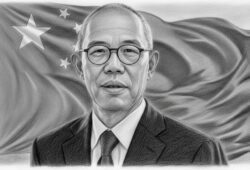A recent Bud Light marketing campaign featuring transgender influencer Dylan Mulvaney has sparked controversy and a subsequent boycott by consumers. The Alabama-based Bama Budweiser distributor, Steve Tatum, has taken proactive measures to address the decline in sales and distance the brand from the controversial partnership.
- The Backlash and Response: Tatum’s radio advertisement pleads with customers to reconsider purchasing Bud Light, emphasizing the distributor’s disapproval of the partnership and assuring customers that the brand has taken action to address the issue. The response aims to regain trust and restore the brand’s reputation among its consumer base.
- Sales Decline: Industry data reveals a significant drop in Bud Light sales, particularly in April and the first week of May. The decline raises concerns for both Bama Budweiser and Anheuser-Busch, as sales of other products under the company’s umbrella have also been affected. The article discusses the extent of the decline and its implications for the overall market performance.
- Misinformation and Damage Control: Anheuser-Busch CEO Michel Doukeris attributes the boycott to misinformation and confusion spread on social media. The company seeks to distance itself from Mulvaney and clarifies that the partnership was not part of an official marketing campaign. The article explores the challenges faced by the company in managing the situation and clarifying its position.
- The Effectiveness of Boycotts: While boycotts are often deemed ineffective, the Bud Light boycott appears to be gaining traction. The article highlights a poll indicating public skepticism regarding companies taking social positions for marketing purposes. It also explores the broader implications for companies engaging in social issues and the need to balance brand reputation with political debates.
- Lessons for Brands: The Bud Light controversy serves as a reminder for brands to carefully navigate social issues in their marketing strategies. The article discusses the importance of focusing on brand values, staying out of divisive debates, and fostering consumer trust in an increasingly politically charged climate.
The Bud Light controversy highlights the challenges faced by brands when engaging with social issues. Bama Budweiser’s response demonstrates the importance of addressing customer concerns promptly, while Anheuser-Busch grapples with the impact on its overall performance. As marketers navigate the intersection of brands and societal debates, finding a delicate balance between engagement and potential backlash becomes crucial for long-term success.
Note: This article aims to provide a professional analysis of the marketing and business aspects of the Bud Light controversy. It does not endorse or promote any specific viewpoint or opinion.










